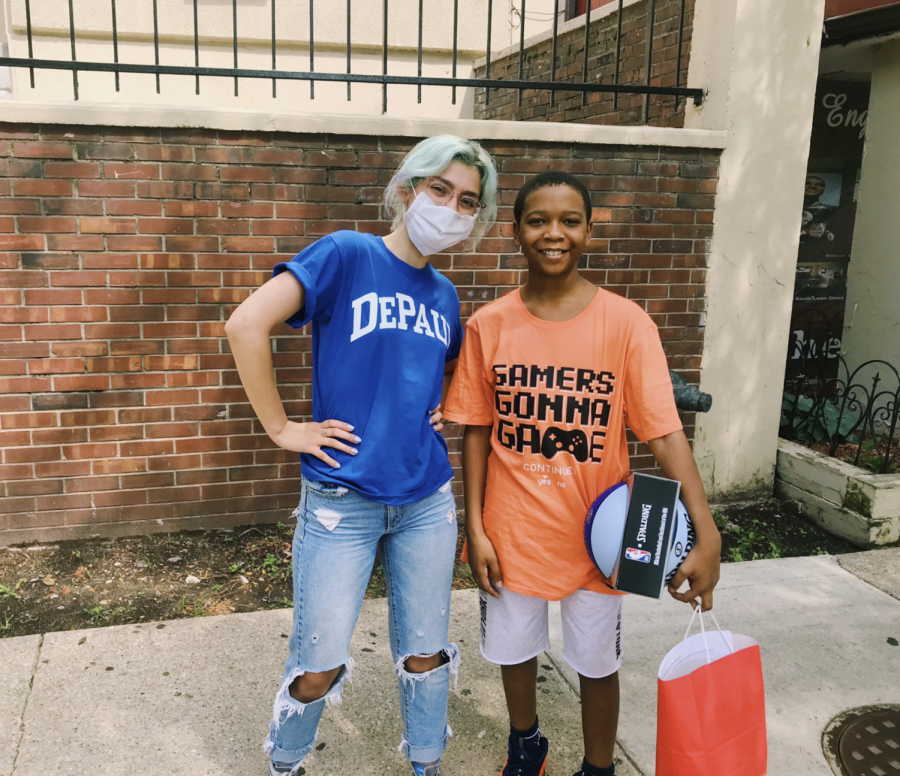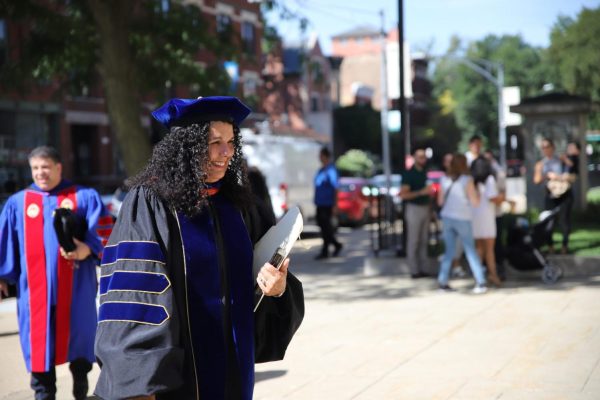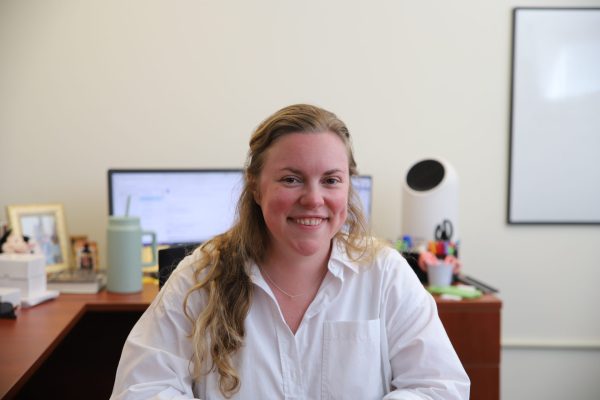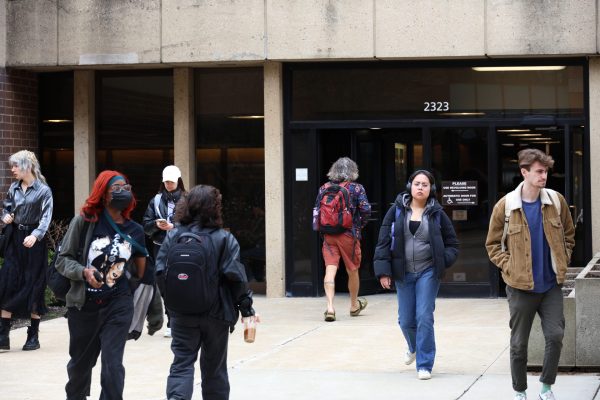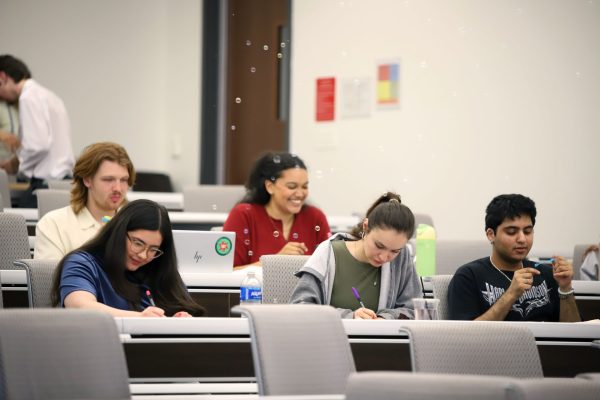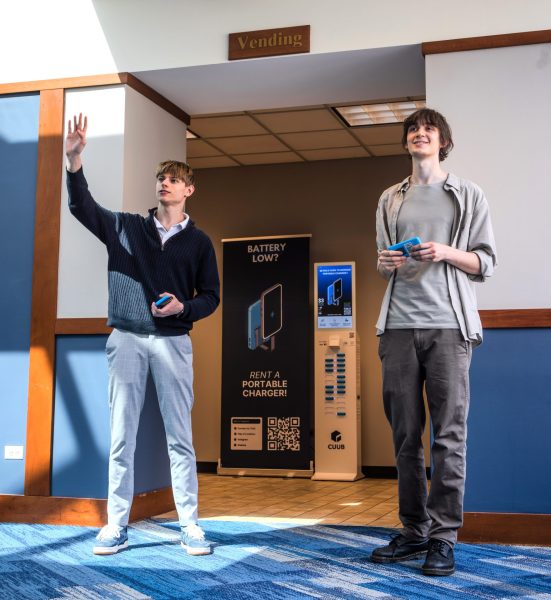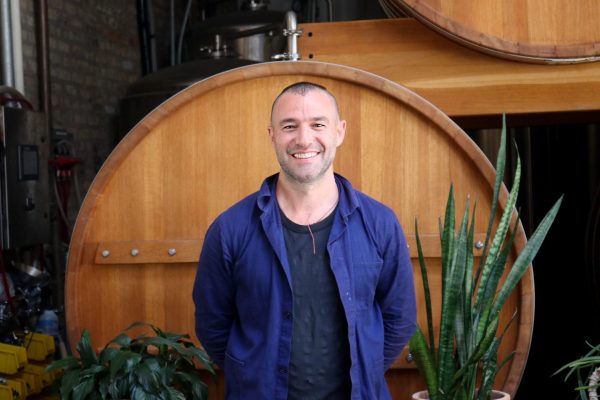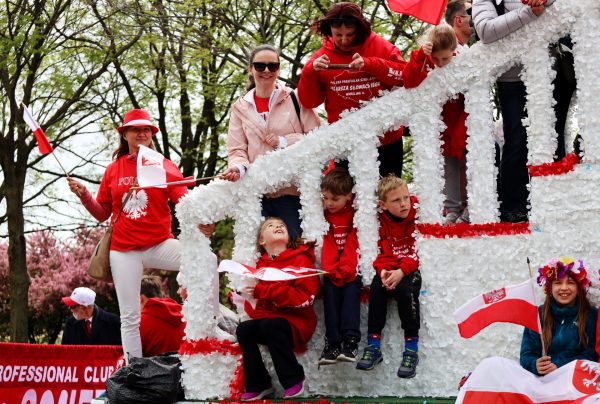DePaul Cities Project hopes to reduce student stress
Courtesy of @thecitiesproject | Twitter
DePaul partnered with The Cities Project mentor program to provide CPS students with training in coping with severe stressors that impede learning.
With its art-covered walls, comfortable furniture and white boards filled with visitors’ drawings, DePaul’s Black Cultural Center provided an ideal backdrop for DePaul Clinical Child Psychology doctoral student Brittanie Gage’s presentation on the DePaul Cities Project.
The project is a nonprofit collaboration between DePaul, Loyola, Northwestern, UChicago, UIC and Chicago Public Schools started by DePaul child psychology professor Kathryn Grant in 1996, and it has since helped over 500 Chicago children and young adults manage stress in a healthy way, according to their website.
The focus of Gage’s presentation was to encourage DePaul students to get involved in the Cities Project by taking part in a mentorship study that would help to, in her words, “research and understand how stressful life experiences impact urban youth and how these young people can actually deal with these stressors.”
According to Gage, participants in the study would be randomly divided into two groups: a “mentoring group” and a “toolkit group.” Each group would participate in a different aspect of stress management in order to analyze how stress affects both elementary and college-age students.
Gage said the mentoring group would make weekly visits to CPS schools on the South and West Sides of the city, where they would serve as a mentor providing academic and social support to students between sixth and eighth grade.
Gage also emphasized that the attendees at this meeting would provide crucial support to the CPS students they mentor, should they choose to sign up for the research study.
“Students who meet regularly with their mentors are less likely to skip school and less likely to skip class, and also less likely to engage in maladaptive behaviors,” Gage said.
Gage also focused on the the importance of the four attendees’ backgrounds to this study. The attendees, all Black DePaul women students, would be working with primarily Black students on the South Side of Chicago.
“A lot of our mentees look for mentors that look like them and have a shared background,” she said. “And research shows that race and ethnic background can play a significant role on how that mentoring relationship plays out.”
The students sorted into the toolkit group will not do any work with CPS students but will instead contribute to the study in a different way.
The toolkit group would receive weekly handouts that “[help] both mentees and mentors figure out how to create measurable goals,” Gage said. “Things that realistically look at undergrad’s experience and try to give them some skills.”
The group is expected to use these handouts, which provide tips to manage sleep, health, homework, and social life, to help manage the stress that comes with being a college student.
“We at DePaul are really interested in how this mentoring program affects your mental health and your emotional health,” Gage said. “We’ve collaborated with Northwestern, and they are very much interested in the same thing, but in a physiological aspect: How does stress affect us internally in our bodies?”
After each quarter of the 2023-24 school year, both study groups would complete a check-in survey as well as health visits at Northwestern University. Those in the mentor group could also receive Social, Cultural, and Behavioral Inquiry or Experiential Learning credits, and both groups would receive a total financial compensation of $985, including three $60 gift cards for completing the quarterly surveys and payments for the health examinations.
“That’s a thousand extra dollars,” Francis pointed out to the interested attendants. “This is a good opportunity.”
The goal of having two groups, according to Gage, is to make sure that mentoring younger students actually creates a noticeable change in their stress levels versus other social supports.
Gage also went on to highlight the benefits of this program for the students who are being mentored. According to her presentation, students who were mentored were “52% less likely to skip a day of school, 37% less likely to skip a class, 46% less likely to start using illegal drugs and 27% less likely to start drinking.”
The ability to earn class credits for the mentorship seemed to put the attendees at ease as well, knowing that they would not have to work with the Cities Project at the same time as their classes.
There was also an undercurrent of wanting to make a difference that was present in the whole group. Prior to Gage’s presentation, the students had talked with her at length about numerous issues they faced with their housing at DePaul and other negative encounters during their time as students.
Gage herself felt drawn to the DePaul Cities Project because of her past experience working with children.
“This has been something that’s kind of a value of mine since I was younger, whether it be working in my church nursery, or in high school I was leading summer camp programs, so, it’s been like a personal thing,” she said.
To Sabrina Salvador, a former research assistant at the DePaul Cities Project who is now pursuing her master’s in counseling at DePaul, the Cities Project proved to be a logical way of continuing her passion for helping.
“I want to continue supporting marginalized students,” she said. “I worked at the children’s hospital, so I did a lot of things with working with kids over time and now I found my groove in supporting college students. But I still like to be in a space where I am supporting Black and brown and other marginalized identities.”


